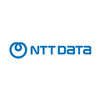28 Expleo Group Jobs

ADAS HIL Tester
Expleo Group
posted 19hr ago
Job Role Insights
Flexible timing
Key skills for the job
Job Description
Overview
As an ADAS HIL Testing Engineer, you will play a pivotal role in testing and validating Advanced Driver Assistance Systems (ADAS) in a simulated environment using HIL systems. The candidate will collaborate with cross-functional teams, including software developers, systems engineers, and vehicle integration teams, to ensure that ADAS functionalities are robust, safe, and perform as expected. Responsibilities
HIL Test Setup: Able to understand HIL environments and should be able to perform configurations / settings as per the project requirements for ADAS functionalities.Test Case Development: Develop test cases and scripts to validate ADAS features like Adaptive Cruise Control, Lane Keeping Assist, Automatic Emergency Braking, and Parking Assistance in a HIL environment.System Validation: Perform system validation and verification for ADAS algorithms by simulating real-world driving scenarios in a controlled environment.Troubleshooting and Debugging: Identify, diagnose, and troubleshoot issues with hardware and software components during HIL testing. Document and track defects using version control and bug tracking tools.Automation: Create automated test scripts and procedures for efficient and repeatable ADAS testing using automation frameworks (dSPACE, ControlDesk, Carmaker).Data Analysis: Collect and analyze test data, and generate comprehensive test reports, providing feedback to development teams to enhance ADAS performance and safety.Collaboration: Work closely with system, software, and hardware engineers to integrate and test ADAS features. Qualifications
Bachelor\u2019s or Master\u2019s degree in Electrical Engineering, Computer Engineering or a related field. Essential skills
Hands-on experience with HIL test platforms (dSPACE, ControlDesk, CarMaker).Strong knowledge of automotive communication protocols such as CAN, LIN, and Ethernet.Experience in developing automation test sequences using controldesk environments.Familiarity with ADAS sensors (radar, camera, lidar) and their integration in HIL setups.Experience with version control (e.g., Git), requirement management (e.g., DOORS), and test management tools (e.g., Jira, Jenkins).Proficient in using tools such as CANalyzer, CANoe, or similar for debugging and communication analysis.Strong analytical and troubleshooting skills, with attention to detail in identifying root causes of issues.Ability to clearly communicate technical information, both written and verbally, with cross-functional teams.
Employment Type: Full Time, Permanent
Read full job descriptionPrepare for Tester roles with real interview advice
People are getting interviews at Expleo Group through
People are getting interviews through
(based on 29 Expleo Group interviews)
Job Portal
Referral
Campus Placement
Walkin
Recruitment Consultant
35%
17%
10%
10%
7%
21% candidates got the interview through other sources.
High
Confidence
?
High Confidence means the data is based on a large number of responses received from the candidates.
What people at Expleo Group are saying
Tester salary at Expleo Group
reported by
2
employees
with 1
years exp.

₹3.9
L/yr - ₹4.9
L/yr
25%
less
than the average Tester Salary in India
View more details
What Expleo Group employees are saying about work life
based on 356 employees
Flexible timing
Monday to Friday
No travel
Day Shift
Similar Jobs for you
Expleo Group Chennai Office Location
Chennai, Tamil Nadu Office
MEPZ - SEZ Unit : Plot No. B-17, 2nd Main Road, Phase II, MEPZ - SEZ, Tambaram,, Chennai, Tamil Nadu 600 045, IN
Chennai, Tamil Nadu
Share an Interview

































